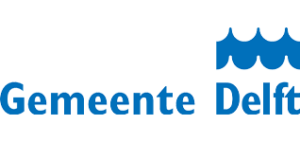Set up by the municipality of Delft in 2006, the Delft Energy Saving Fund is part of a wide range of instruments supporting local projects aimed at energy savings and generating renewable energy. Its creation was enabled by the introduction of the “Delft financial energy regulation” – a specific local regulation which was at that moment part of the ‘Delft subsidy regulation’ as required by the Dutch general Administrative Law Act. This fund provides the citizens and non-profit organizations with the possibility to get a favourable low interest loan of about 1.5% to invest in renewable energy systems such as heat pump or solar panels and/or energy saving measures. The fund operates as a revolving fund. The payment term equals the pay-back time of implemented energy measures. The fund will revolve after a certain time via the loan payments (credit instalments) flowing back to the Fund.
Business model – How is the financing scheme implemented?
The Delft Energy Saving Fund is funded 100% by the Delft municipality which itself had to borrow the money from the Bank for Dutch Local Authorities. The Fund was launched in 2006 with €200,000 and 2% interest rate provided to beneficiaries. The soft loans scheme is managed by the executing bank – Stichting Volkhuisvesting Nederland (SVn). Municipality pays the bank from the Fund some 1.5% for the management costs. In 2013, some € 500,000 was injected in the Fund and the conditions for the use of the Fund changed. Interest rate offered to beneficiaries is 4 % under the market rate which is in average 1.5% (this is also a fixed minimum rate) for 10 years maturity.
Organisation & partnerships
(see pdf)
- The municipality of Delft: sets up the Delft Energy Saving Fund and decides on policy priorities, beneficiaries and type of financial support. It manages 100% of the Fund and approves eligible projects to be financed by the SVn bank.
- SVn bank: administers the loans – checks on creditworthiness, contracts the loans and receives monthly payback.
Results
Between 2006 and 2013, 15 households and 1 sports club applied for a loan, at 2.75% interest rate. Since the new conditions apply from 2013 (interest rate 4% below market rate), another 7 applications were granted (6 households and 1 sports club).
In the period August 2010 – July 2013 the Delft soft loans scheme was combined with a subsidy system. Private house owners could receive subsidy when they reduced their energy consumption by more than 10% (measured by an EnergyIndex). The maximum subsidy could reach 50% of investment with a maximum of € 1,850. Since the ‘Delft subsidy regulation’ was cancelled after July 2013, the amount of applications for the soft loans increased.
Key success factors
- The main obstacle remains the awareness of house owners who are not convinced that investing in energy saving measures is profitable.
- For Delft, it was a success to find a legislative solution for the creation of the soft loans scheme. In 2006, the revolving fund was part of the ‘Delft subsidy regulation’. In 2008 a national law obliged Delft to adopt a new regulation which did not cover the Fund as it was not providing subsidies. It took 5 years to convince the Controlling department that the low interest loan is a kind of subsidy, so since 2013 the Fund is under the Subsidy regulation again.
- Another challenge for the Environmental department was to convince the Controlling and Financial department to set up the revolving fund although it makes the municipality’s balance sheet more complex. Comparative study – Spring 2014 26
- Nowadays there are even several revolving funds within the municipality. Due to the economic crisis the city council found out that revolving funds make it possible to achieve a maximum result with limited budget.
Promotion
- In 2006 the city launched a wide communication campaign but realised it was quite difficult to promote a loan (as a municipality, do you want your citizens to have debts?) – it was not a success. There is no specific communication plan for promoting the Delft Energy Saving Fund. Together with the former subsidy regulation, the Fund is promoted within the Delft Climate Plan.
- In 2009, a campaign Bring Energy in Your House was launched. Energy saving advisors and suppliers of energy saving materials visited all Delft neighbourhoods and as a result the municipality noticed extra interest for the soft loans.
- The most powerful communication tools were internet and meetings in the neighbourhoods. The City of Delft also has a website ‘EnergieLoket’ dedicated to energy savings and it’s combined with a back-office. It is an important instrument to reach Delft inhabitants and SMEs. During the camping Bring Energy in your House, the EnergieLoket functioned as the communication portal and informed inhabitants about both – the subsidies and soft loans scheme

